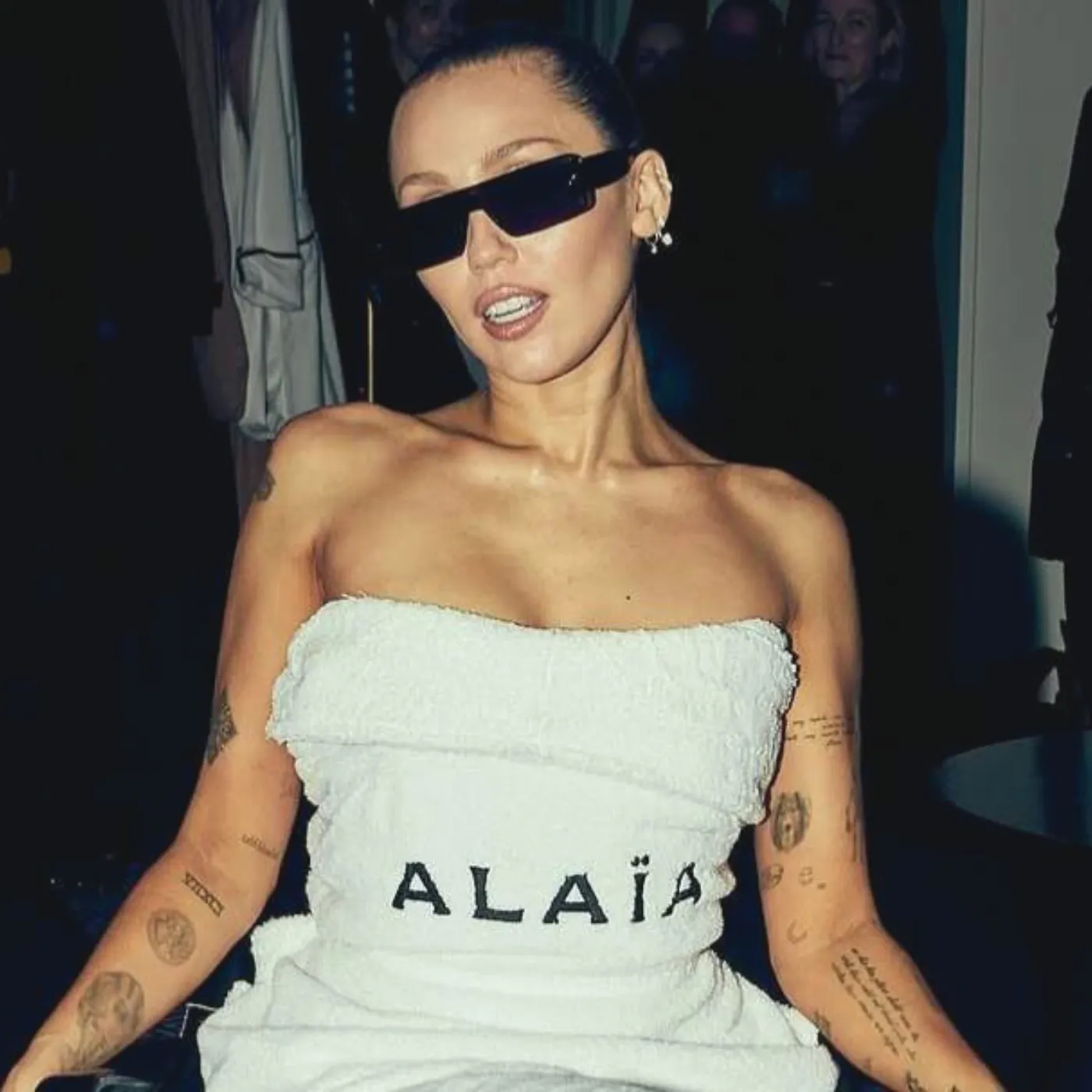

Miley Cyrus Just Torched Every Hater Who Says Pop Music Isn’t “Real”
Pop music — it’s everywhere, yet it still faces an uphill battle against critics who claim it’s “manufactured” or lacks authenticity. But Miley Cyrus, one of the most outspoken voices in music today, just dropped some truth bombs that are shaking up the conversation in her latest interview with Zane Lowe. With her trademark mix of honesty, grit, and fierce confidence, Miley isn’t just defending pop music — she’s setting the record straight and calling out the lazy narratives holding the genre back.

Pop Gets a Bad Rap — But That’s Not the Full Story
“Pop really gets a bad name for being ‘manufactured label creation,’ and that’s not what it is,” Miley said in the interview. These words hit hard because they challenge a stereotype that’s been thrown around for decades. Pop is often dismissed as “fake,” “cookie-cutter,” or “corporate,” but Miley calls that out as lazy thinking.
What she points to is a real problem: people dismiss pop without even doing their homework. “Calling it that is generic and lazy because you’re not doing your research and your homework, you’re not listening to enough music and diving into culture,” she said. And that’s exactly why the pop genre still faces so much disrespect, even when it’s producing some of the most innovative, boundary-pushing music in the world.
Too often, pop gets labeled as the “easy option” or the “commercial product”—but” that ignores the reality of how much work and talent goes into making a hit. It’s an oversimplification that cheats the artists, producers, and songwriters who pour creativity and emotion into every track.
Why Are People So Quick to Dismiss Pop?
The answer partly lies in the perception of pop as a “safe,” mass-produced sound designed purely to sell records. But that couldn’t be further from the truth. Pop music evolves faster than almost any other genre, constantly adapting to new sounds, trends, and cultural shifts. And while it may sometimes lean on catchy hooks and polished production, it also offers a powerful platform for artists to express complex emotions, experiment with styles, and connect with millions of fans worldwide.
Miley calls out the critics for not “keeping up” with what’s really happening in pop. That’s a key point because, as she says, “legends keep up.” When people cling to outdated ideas about pop music, they miss out on the genre’s incredible diversity and evolution.
It’s not just about sound — it’s about impact. Pop has a way of setting trends, influencing social norms, and bringing people together. It’s a cultural barometer that reflects what’s happening in society at large, whether through empowering anthems, heartbreak ballads, or rebellious statements.
The Culture Behind the Music
Miley isn’t just talking about sound — she’s talking about culture. Pop is more than just the songs you hear on the radio; it’s a cultural force shaping fashion, social attitudes, and even the way people communicate. When she says people aren’t “diving into culture,” she means they’re missing the bigger picture. Pop artists often serve as trendsetters and storytellers, giving voice to a generation’s hopes, struggles, and dreams.
Pop culture influences everything from hairstyles and clothing to slang and activism. It’s a constantly evolving conversation between artists and fans, and the impact goes far beyond just the music itself. It’s a full sensory experience that shapes identities and community.
The fact that pop sometimes gets lumped together with “manufactured label creation” ignores the artistic sweat and creativity behind the scenes. Songwriters, producers, choreographers, and designers all pour their hearts into making pop a living, breathing culture — one that evolves with its fans.

Miley Cyrus: More Than Just a Pop Star
Miley herself has had a career that defies easy categorization. From her early days as a Disney star to her rebellious, boundary-breaking hits, she has shown that pop music can be raw, real, and rebellious. She’s walked through different genres, but she keeps returning to pop because of its power and reach.
Her defense of pop music comes with the weight of someone who’s lived the highs and lows of the industry. She’s seen firsthand how labels push artists, but she’s also seen the passion and artistry that fuels every hit record. Her words remind us that pop isn’t some cookie-cutter product — it’s a living, evolving form of expression.
Miley’s unique position gives her authority to speak on this topic. She’s faced criticism herself, and instead of shying away, she’s been vocal and authentic — qualities that make her defense even more powerful.
Pop’s Evolution and Miley’s Role in It
Pop music today is a complex mosaic of sounds. From electro-pop and synthwave to dancehall and indie pop, the genre absorbs influences from around the world. It’s a melting pot that reflects global culture.
Miley has been a part of that evolution, experimenting with rock, country, hip-hop, and electronic music while still staying rooted in pop’s core. Her musical journey embodies the genre’s fluidity and refusal to be boxed in. It’s this fearless adaptability that keeps pop fresh and relevant — and why Miley’s voice matters so much in the conversation.
Why This Matters in 2025
In 2025, the music industry is changing faster than ever. Social media, streaming platforms, and global fan bases have reshaped how music is made, shared, and celebrated. Pop remains at the center of this revolution. Its ability to adapt, absorb, and reinvent makes it a powerhouse, but it also faces relentless criticism from those unwilling to see its depth.
Miley’s bold statement is a challenge — not just to pop’s critics but to all of us as listeners. To truly appreciate pop, we need to move beyond lazy labels and dig deeper. That means paying attention to the artistry, the culture, and the voices behind the music. It means recognizing that pop can be both fun and meaningful, commercial and creative, and accessible and revolutionary.
The music landscape is more competitive and diverse than ever. Artists must innovate continuously to stay relevant. This puts pop music in a unique position as both a cultural trendsetter and a reflection of societal change.
What “Legends Keep Up” Really Means
When Miley says, “Legends keep up,” she’s setting a bar for both artists and audiences. Staying relevant means evolving with the times, embracing change, and refusing to be boxed in by stereotypes or old narratives.
For listeners, it means being curious and open-minded, not dismissive. For artists, it means pushing boundaries and staying true to their vision — even when it goes against the grain.
This mindset has helped Miley stay at the forefront of music for years, and it’s a reminder that pop music’s critics might want to take notes.
The Power of Pop: More Than Meets the Ear
Pop music’s impact goes far beyond catchy choruses. It shapes identities, challenges norms, and brings people together across divides. Miley’s defense highlights how pop is a reflection of society itself — vibrant, complex, and constantly evolving.
Whether you love it or hate it, pop music’s influence is undeniable. It’s the soundtrack to millions of lives, a cultural glue connecting generations. And Miley’s words remind us that dismissing it without understanding does a disservice to the genre and the artists who pour their hearts into it.
Pop Music’s Hidden Depths
Pop songs often have layers of meaning beneath their catchy surface. They can tell stories of love, loss, triumph, and struggle. Artists like Miley use pop as a canvas to paint their most personal and honest emotions.
Moreover, pop’s accessibility means it has the power to reach a wider audience, spreading messages and emotions that might otherwise stay hidden in niche genres. That’s why it’s vital to recognize the artistic merit within pop, not just write it off as disposable.

Final Thoughts: Stop the Lazy Criticism
Miley Cyrus’s unapologetic defense of pop music is a call to action. It’s about demanding more from ourselves as listeners and critics. If we want to truly respect music, we need to move beyond tired labels and embrace the full spectrum of what pop has to offer.
Pop is not just a genre; it’s a cultural movement. And as Miley says, legends keep up — maybe it’s time we all did.


















